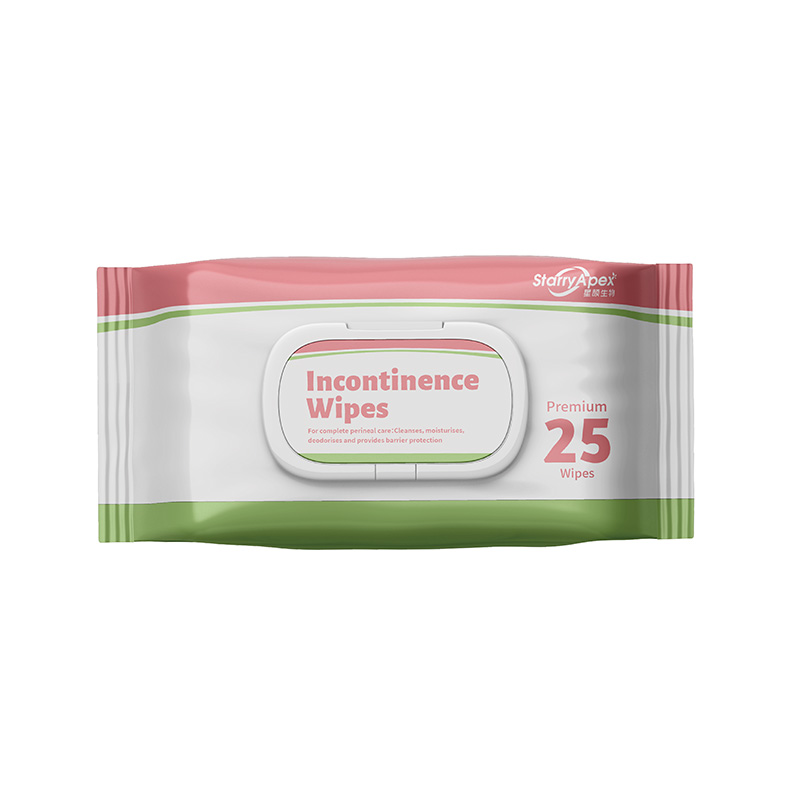Caring for bedridden patients requires careful attention to hygiene, comfort, and skin health. Maintaining cleanliness is not only essential for comfort but also for preventing infections, skin irritation, and pressure sores. Among the tools available for personal care, Incontinence Wipes have become increasingly popular. But can they truly be suitable for bedridden patients?
Understanding Incontinence Wipes
Incontinence Wipes are pre-moistened wipes designed to clean and refresh the skin, particularly in areas prone to moisture and waste exposure. Unlike regular wet wipes, incontinence wipes are formulated to be gentle on sensitive skin, often containing moisturizing agents and being free from harsh chemicals. They are commonly used for adults who experience urinary or fecal incontinence, making them relevant for bedridden patients who may be unable to access a bathroom easily.
Benefits of Using Incontinence Wipes for Bedridden Patients
-
Maintains Skin Hygiene
Bedridden patients are at higher risk of skin infections due to prolonged exposure to urine or stool. Using Incontinence Wipes helps remove waste quickly, reducing the risk of bacterial growth and odor. -
Prevents Skin Irritation and Rashes
Prolonged contact with moisture can lead to skin irritation, redness, and rashes. Incontinence wipes are usually designed with pH-balanced formulas that soothe the skin while cleaning, helping prevent common skin issues. -
Convenience and Ease of Use
For caregivers, Incontinence Wipes provide a convenient method of cleaning without requiring full baths. They are portable and require no additional water, making daily hygiene routines more manageable. -
Moisturizing Properties
Many incontinence wipes contain aloe vera, vitamin E, or other moisturizing ingredients that help maintain skin integrity. This is particularly important for bedridden patients whose skin is more susceptible to dryness and breakdown. -
Reduced Risk of Infection
Proper cleaning reduces the presence of bacteria and fungi on the skin, lowering the chances of urinary tract infections or skin infections that bedridden patients are more prone to.
Proper Use of Incontinence Wipes for Bedridden Patients
While Incontinence Wipes are beneficial, their effectiveness depends on correct use. Here are some best practices:
-
Clean Thoroughly but Gently
Wipe the affected area with gentle strokes. Avoid harsh rubbing, which can irritate fragile skin. -
Check for Skin Changes
Before and after cleaning, check the skin for redness, rashes, or sores. Early detection of pressure ulcers or irritation can prevent more serious problems. -
Use a Separate Wipe for Each Area
Avoid cross-contamination by using a fresh wipe for each part of the body. -
Dispose Properly
Most incontinence wipes are not flushable. Dispose of used wipes in a waste bin to maintain hygiene. -
Supplement With Other Care
While wipes are convenient, they do not replace full baths. Schedule regular bathing or sponge baths to maintain overall cleanliness.

Limitations and Considerations
Although Incontinence Wipes offer many benefits, there are limitations to consider:
-
Not a Substitute for Full Hygiene
For bedridden patients, occasional full baths are still necessary to maintain overall hygiene and comfort. -
Skin Sensitivity
Some patients may react to certain ingredients in wipes, even if labeled hypoallergenic. Testing a small area first can help avoid allergic reactions. -
Moisture Management
Wipes clean the skin but do not absorb excess moisture. Proper use of incontinence pads, diapers, or bedding is necessary to keep skin dry. -
Cost
Frequent use of incontinence wipes can be more costly than traditional cleansing methods. However, the benefits in preventing infections and skin issues may offset the cost.
Choosing the Right Incontinence Wipes
Selecting the appropriate Incontinence Wipes for bedridden patients is crucial. Consider the following:
- Fragrance-Free vs. Scented: Fragrance-free wipes are generally gentler on sensitive skin.
- Alcohol-Free: Alcohol can dry out or irritate skin. Choose wipes that are alcohol-free.
- Moisturizing Formulas: Wipes with aloe or vitamin E help maintain skin integrity.
- Dermatologist-Tested: Look for products tested for sensitive skin.
- Biodegradability: For environmental considerations, biodegradable options are preferable.
Conclusion
Yes, Incontinence Wipes can be safely and effectively used for bedridden patients. They provide a convenient way to maintain hygiene, prevent skin irritation, and support overall comfort. However, they should be used as part of a comprehensive hygiene routine that includes regular monitoring of skin health, proper moisture management, and occasional full baths. By choosing the right wipes and using them correctly, caregivers can improve the quality of life for bedridden patients and help prevent common complications associated with immobility.
Key Takeaways:
- Incontinence wipes are gentle, convenient, and effective for cleaning bedridden patients.
- They help prevent rashes, irritation, and infections but are not a substitute for full bathing.
- Proper selection, usage, and disposal are essential for maximum benefits.


 English
English 日本語
日本語 Español
Español عربى
عربى Deutsch
Deutsch Français
Français Baby Wipes
Baby Wipes Industrial & Automotive Wipes
Industrial & Automotive Wipes Biodegradable Wipes
Biodegradable Wipes Cotton Buds and Pads
Cotton Buds and Pads

